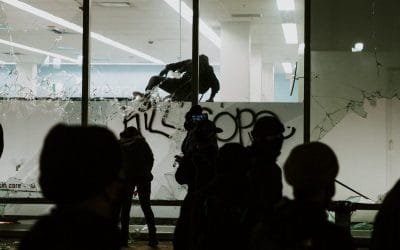It is an injustice to the tax-payers, who are made to pay a debt which is no concern of theirs.
MARKETS
The Curse of Automation
“A curse on machines! Every year, their increasing power devotes millions of workmen to pauperism, by depriving them of work, and therefore of wages and bread. A curse on machines!”
The Illusory “Benefits” of Restricting Trade and Industry
Some persons consider that plunder is perfectly justifiable, if only sanctioned by law.
The Importance of the Middleman
They would gladly suppress the capitalist, the banker, the speculator, the projector, the merchant, and the trader, accusing them of interposing between production and consumption, to extort from both, without giving either anything in return.
The Loss To The Economy From Public Works
The State opens a road, builds a palace, straightens a street, cuts a canal; and so gives work to certain workmen — this is what is seen: but it deprives certain other workmen of work, and this is what is not seen.
Ought the State to Support the Arts?
If they take one direction, it is only because they have been diverted from another.
No Better Investment Than Taxes?
It is nonsense to say that the Government officer will spend these hundred sous to the great profit of national labour; the thief would do the same; and so would James B., if he had not been stopped on the road by the extra-legal parasite, nor by the lawful sponger.
Disaggregating Keynes Demonstrates Macro Delusions
Keynesian Economics has continued to dominate and hold sway over the way the vast majority of economists think about and analyze the nature of economy-wide fluctuations in employment and output.
Disbanding The Troops
You do not see that to dismiss a hundred thousand soldiers is not to do away with a million of money, but to return it to the tax-payers.
That Which is Seen, and That Which is Not Seen
What would become of the glass makers, if nobody ever broke windows?
President Donald Trump is a Classic Mercantilist
Trump is a classic mercantilist. A mercantilist favors exporters over importers and the use of government tariffs to promote (or “protect”) less efficient, but politically favored “national champion” companies against their foreign competitors.
The New Deal and Recovery, Part 8: The NRA
The 1933-37 recovery fell far short of reversing the collapse the U.S. economy suffered between 1929 and 1933, and that this disappointing outcome was the result of New Deal policies aimed at boosting wage rates. The resulting higher wage rates prevented the revival of spending from sponsoring a corresponding revival of employment.
Celebrate Entrepreneurs Like Amazon’s Jeff Bezos, Don’t Guillotine Them
The key to getting wealthy in a capitalistic society is to produce something so valuable that millions of people want to trade for it. This is the source of all great historical fortunes.
The New Deal and Recovery, Part 7: FDR and Gold
The causes of the gold inflow that fueled the post-1933 recovery, and especially the part played by FDR’s decision to devalue the dollar.
The New Deal and Recovery, Part 6: The National Bank Holiday
During the opening days of March, 1933, the U.S. economy resembled a stricken body slowly bleeding out, its organs failing one by one. The Federal Reserve System was hemorrhaging gold, and entire state banking systems were shutting down one after another. I
The New Deal and Recovery, Part 5: The Banking Crisis
To understand how the world’s largest economy ended up shutting-down its entire banking system, one must first be aware of a long-standing defect of that system and of how it led, first to the proliferation of small and under-diversified banks, and then to as many bank failures.
The New Deal and Recovery, Part 4: FDR’s Fed
If ever an administration had control over Fed policy, and monetary policy more generally, FDR’s was it. It follows that, if monetary policy did less than it should have to end the Great Depression, the Roosevelt administration must bear a good share of the blame.
The New Deal and Recovery, Part 3: The Fiscal Stimulus Myth
Although almost everyone assumes that fiscal stimulus played a big part in bringing the Great Depression to an end, the truth is that its contribution was insignificant.
The New Deal and Recovery, Part 2: Inventing the New Deal
The New Deal wasn’t a grand scheme at all, but an assemblage of steps and programs, many of which were decided upon or concocted only after Roosevelt took office.
The New Deal and Recovery
I hope to introduce my readers to evidence casting doubt on the view that New Deal programs ended, or mostly ended, the Great Depression.
The New Deal and Recovery, Part 1: The Record
When I say “the New Deal,” I mean the “series of programs, public work projects, financial reforms, and regulations enacted by President Franklin D. Roosevelt in the United States between 1933 and 1939.”
The Marxist Attack on Business in the Media and the Streets
Although the ideas behind the attacks on business are often not explicitly labeled as Marxist, that is what they are.
Is the Amazon Forest Really a Market Failure?
The vast majority of Amazonian deforestation happens on land directly controlled by Brazilian states or the federal government.
TikTok, Trump and the Art of the Shakedown
The impending takedown of TikTok sets a dangerous precedent. It marks a serious diminution of the rule of law and a major step-up in the authoritarian use of power by our executive branch.
Subscribe for free.
Latest pro-Capitalism goodness sent weekly to your email box.
No spam. Unsubscribe anytime.


















